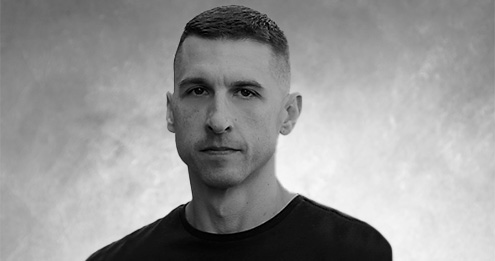- Active Duty
- Project Management
- Marines
Certification Spotlight
Credentialing success from the Service community
How a Marine Corps Major turned his military experience into civilian certification
Justin Owens, Marine Corps Major
For many Service members, daily military work consists of working to complete missions, or “projects” as they are known in the civilian sector, acquiring valuable work experience that can be applied to civilian certification requirements, including the Project Management Professional (PMP®). Marine Corps Major Justin Owens reveals how he blended his education and experience background with formal training to earn a Project Management Professional certification while on active duty.

Justin Owens, Marine Corps Major
How long have you been in the Marine Corps, and what is your current rank and MOS?
I’ve been in the Marine Corps for 17 years. I’m a Major and my MOS is 7565, which is an AH1 cobra attack helicopter pilot, but I haven’t flown for about 3 years now. Once you come off of the flying track in the MOS you become more of a staff officer, so over the past 3-and-a-half years, I’ve been doing a lot of staff work. In my current role, I am a reserve legislative liaison, which is essentially an operations officer at the Pentagon for Marine Forces Reserve. A typical day for me is quite a bit of staff work and projects.
What made you want to get a project management certification?
I’m approaching 20 years in the military and, at some point, I’m going to leave active duty and head to the civilian world. I’ve heard a lot of good things about the Project Management Professional certification being a good fit for people with military experience, and I’ve been doing “projects” for 17 years in the Marine Corps, although we don’t call them projects in the military; it’s just part of the work we do on a day-to-day basis. I wanted to lay the groundwork and make sure that I have civilian certifications in my back pocket before I leave.
Utilizing an online learning system to help make the transition from the military terminology to PMP terminology is invaluable.
How did you ensure that you found time to study and learn the exam content while also performing your required military duties?
Anytime that you are trying to study or sit for a certification that directly related to your role in the Marine Corps, you need to do it on your time, whether that is before work, after work, on a lunch break or whenever you can get a chance to take a break. I had just finished my MBA while I was on active duty, so having that time set aside to study was already part of my routine. Instead of studying for my MBA, I studied for my PMP for the next three months, and I was certified in January 2020.
What do you know now about the certification process that you wish you had known when you started?
I wish I had known that you have to apply and get the Project Management Institute to certify that you meet the requirements just to take the PMP test. I assumed that, once you were ready, you could take the test. That was a little bit of a learning curve to get the application process sorted out, but once you get the application figured out, the process was easy.
What recommendations do you have for Service members who are just starting their certification process? Are there particular study and preparation tools and techniques that you recommend?
Utilizing an online learning system to help make the transition from the military terminology to PMP terminology is invaluable, whether it’s PM-ProLearn or any of the other ones that are out there. I thought the PM-ProLearn training was outstanding. It was a five day crash course in PMP along with an online learning curriculum that was well above what I expected. The amount of rigor and professionalism that they put into the courseware made it a great asset.
Without a doubt, the three things that got me ready for the exam were reading the Project Management Body of Knowledge, going through the PM-ProLearn online curriculum and taking the PM-ProLearn boot camp. There was also an iPhone app that was recommended to me by a fellow colleague who said it was a good supplement to the PM-ProLearn training. I used that for about six weeks prior to taking my PMP to make sure that I was looking at the right stuff.
I think there is a huge opportunity with PMI and the training providers to really get more involved and form a partnership with the Services and DoD to try and teach that methodology and support the Service members.
What should Service members be prepared for as they think about the exam?
It’s not easy. I did really well on all of my practice tests and I still needed the full four-hour time limit to take my test. I got above target on all of my categories, but it was definitely harder than I thought it was going to be.
What can testing organizations and partners do to better message and reach their potential audience in the military community?
There are certain commands that will send their people to get PMP trained, and there are other commands that won’t, so currently it’s a very command-specific action, and not service-wide. For example, I heard about the PMP certification just through word of mouth. I think there is a huge opportunity with PMI and the training providers to really get more involved and form a partnership with the Services and DoD to try and teach that methodology and support the Service members. There is a bit of a lost opportunity within the DoD writ large when it comes to those partnerships right now, but there’s a lot of potential for more opportunities in the future.
